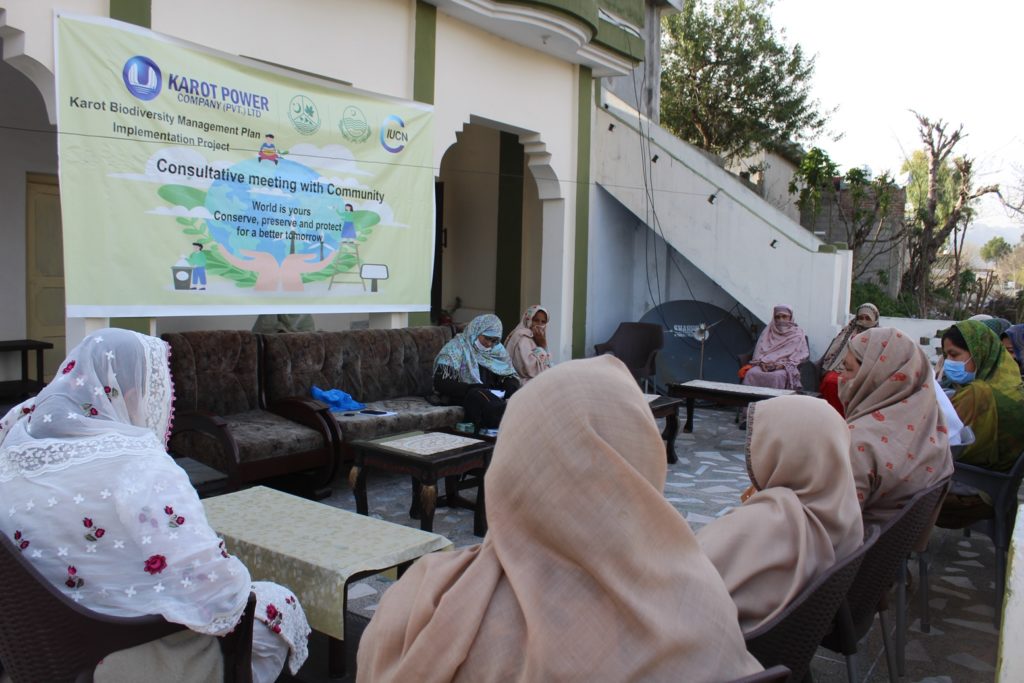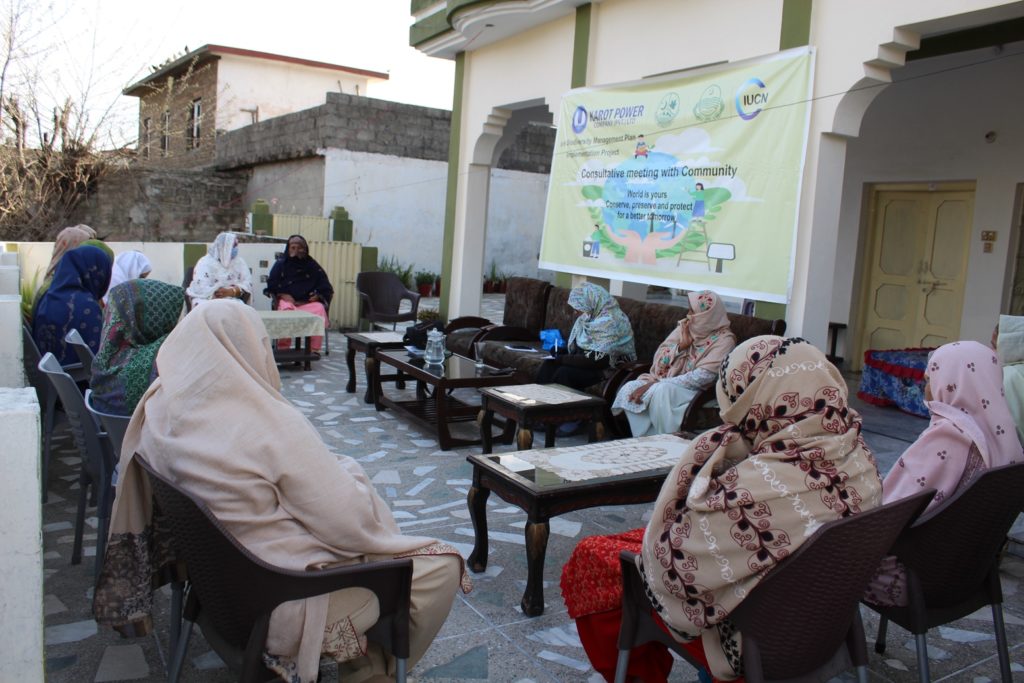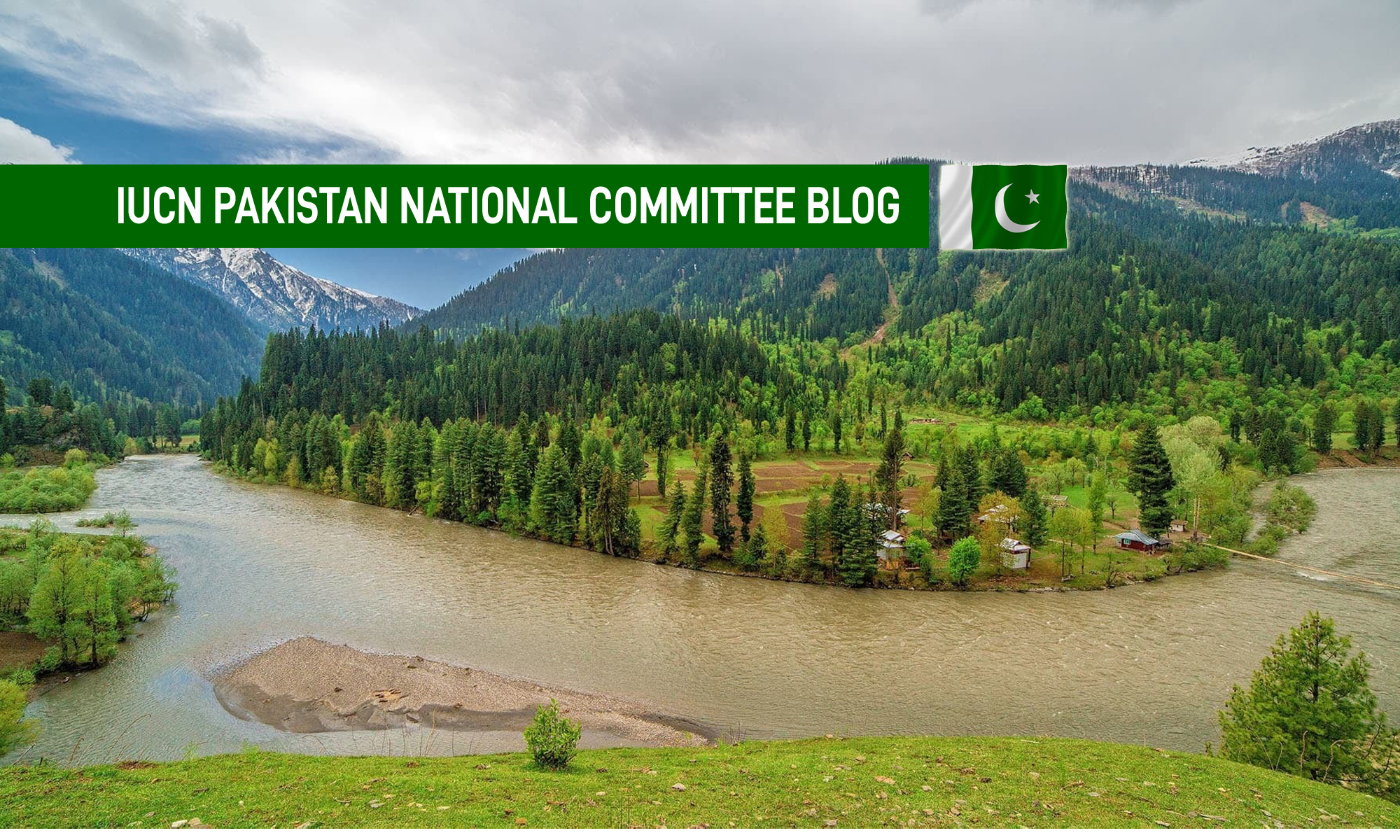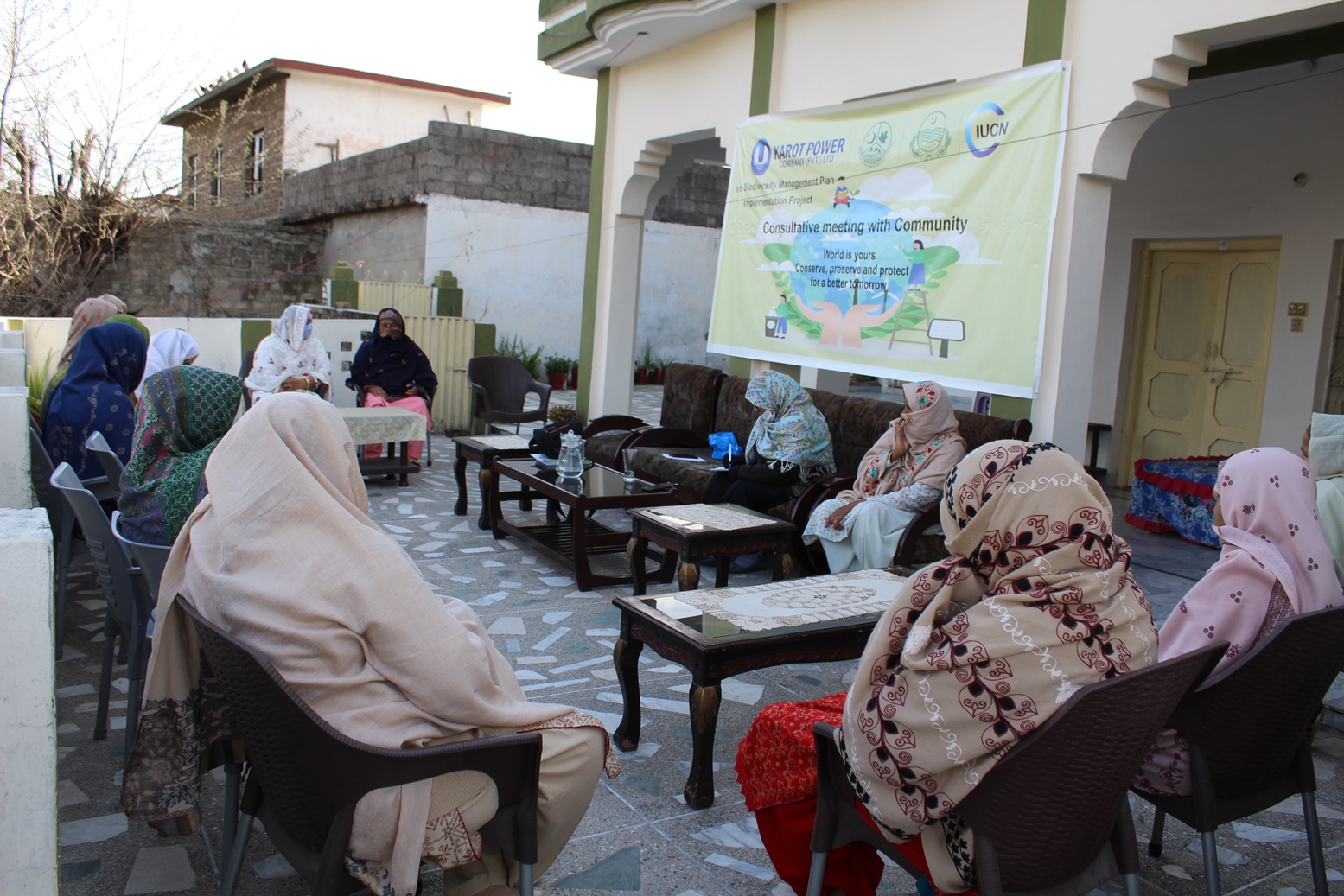International Women’s Day 2022 was celebrated with the female community members of Beor, Punjab. An orientation meeting was organized with the local community and their female representatives who are playing key role in the biodiversity conservation in the surrounding areas.
Ms. Komal Ashraf and Ms. Shaheen Akhtar (Social Mobilizer, IUCN Pakistan) briefed the participants on the importance of the day and the role of women in conservation of natural resources.

International Women’s Day is a global day to celebrate and acknowledge the social, economic, cultural and political achievements and contribution of women. The day also marks a call to action for accelerating gender equality. Significant activity is witnessed worldwide as groups come together to celebrate this day and highlight the achievements of the shining stars.
Marked annually on March 8th, International Women’s Day (IWD) is one of the most important days of the year to celebrate women’s achievements, raise awareness about women’s equality, lobby to highlight their role. The campaign theme for International Women’s Day 2022 is #BreakTheBias. Whether deliberate or unconscious, bias makes it difficult for women to move ahead. Knowing that bias exists isn’t enough. Action is needed to level the playing field.

While talking about the importance of this day, Ms. Komal mentioned that this year’s IWD observance is in recognition and celebration of the women and girls who are leading the charge on climate change adaptation and response, and to honor their leadership and contribution towards a sustainable future.
It was highlighted by Ms. Shaheen Akhtar that the women need to be equally and actively involved in processes to conserve and sustainably use biodiversity because they play critical roles as primary land managers and resource users, and they face disproportionate impacts both from biodiversity loss and gender-blind conservation measures.
Women in many countries are increasingly taking on responsibility for managing small-scale agriculture, they do not have an equivalent voice in decision-making related to land use, nor equal access to needed resources. Biodiversity loss also poses a disproportionate burden for women and girls by increasing the time required to obtain necessary resources such as water, fuel wood, and medicinal plants, which reduces the time they can spend on income generating activities and education.
Beyond equity, enabling women’s full engagement in biodiversity decisions is critical to ensure that biodiversity conservation and sustainable use efforts are successful in the long term.
Without the contributions and buy-in of women and girls, these efforts risk overlooking the root causes of biodiversity loss, as well as potential solutions, and may continue to perpetuate gender inequalities.
This is especially true for indigenous and rural women, who are often more marginalized in decision-making processes. Women’s particular roles and responsibilities within the household, community, and society lead women to develop unique knowledge related to biodiversity, shaped by their specific needs and priorities. They are thereby in a unique position to bring different perspectives and new solutions to addressing biodiversity concerns.
Yet, women across the world are underrepresented in decision-making positions related to environmental and sustainable development issues. Women also fall well behind men in achieving paid employment in natural resource management sectors – notably agriculture, fisheries, and forestry – in both developing and developed countries.
The female community representatives acknowledged the role of IUCN Pakistan in raising awareness for biodiversity and natural resource conservation in the surrounding areas.










